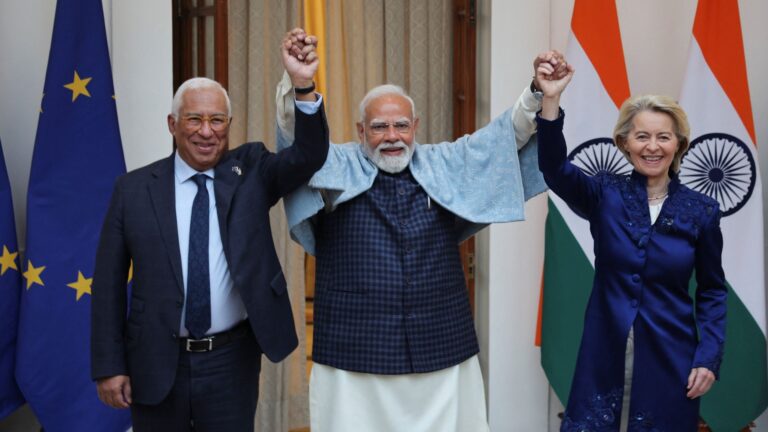
Feminist diplomacy is a progressive approach to international relations that focuses on gender equality, human rights, and inclusivity in global decision-making. It challenges traditional diplomacy, which has largely been shaped by male-centric ideas of power, security, and negotiation.
Rather than viewing diplomacy through the lens of military strength and political dominance, feminist diplomacy aims to redefine priorities. It places equal emphasis on peacebuilding, sustainable development, care economies, and representation of marginalized voices, particularly women and girls.
It does not mean diplomacy only for or by women. It means shaping foreign policy based on values like equity, empathy, collaboration, and justice, which benefit all gender.

Where Did Feminist Diplomacy Began?
The formal journey began in 2014 when Sweden became the first country to adopt a Feminist Foreign Policy (FFP) under Foreign Minister Margot Wallström. Sweden’s vision was built on three pillars— rights, representation, and resources, calling for equal access to human rights, gender balance in diplomacy, and equitable distribution of foreign aid.
Since then, several countries including Canada, France, Mexico, Spain, Libya, and Chile have developed their own models of feminist diplomacy. Each nation has adapted it to their political systems, cultural realities, and foreign policy objectives.
For example:
- Mexico became the first country in the Global South to launch a feminist foreign policy in 2020.
- Canada’s approach linked feminism with trade and development aid decisions.
- France tied feminist diplomacy with its fight against gender-based violence in conflict zones.
Why Feminist Diplomacy Matters Today
In today’s global landscape, traditional diplomacy often overlooks how conflict, climate change, pandemics, and economic instability affect different groups unequally.
For example:
- In war zones, women and children are disproportionately impacted but rarely included in peace talks.
- During the COVID-19 pandemic, women bore the brunt of unpaid care work but were underrepresented in decision-making forums.
- In climate negotiations, indigenous and rural women face direct consequences yet remain voiceless in high-level summits.
Feminist diplomacy addresses these imbalances by asking—
Who is at the table? Whose voices are missing? Whose needs are prioritised?
What About India
India has not officially adopted feminist diplomacy, but several indicators show its gradual shift:
- The Women Peacekeepers deployed by India in UN missions have been internationally appreciated.
- India’s permanent mission to the UN regularly raises issues like menstrual health, gender-based violence, and female empowerment.
- Policies such as the Beti Bachao Beti Padhao scheme and Nari Shakti Vandan Adhiniyam (women’s reservation) show India’s internal commitment to women’s inclusion.
India’s growing leadership in the Global South, particularly through the G20 presidency, opens doors to embed gender equality in diplomacy without necessarily using the ‘feminist’ label.
Feminist Diplomacy in a Changing World
The world is increasingly interconnected and interdependent. Security is no longer just about borders and weapons. It includes climate stability, health security, education, technology access, and gender equality. Feminist diplomacy helps broaden the very definition of global security.
When more women participate in peace processes, the peace agreements last longer, aid is gender-sensitive, communities recover faster. When women are visible in diplomacy, foreign policy becomes more holistic and ethical.
This shift reflects a larger demand for inclusivity, transparency, and ethics in governance, globally and locally.
What Lies Ahead
Feminist diplomacy is still evolving. Some nations will adopt it fully, others may selectively integrate its principles. But one thing is clear: “The old model of diplomacy based on power blocs, secrecy, and exclusion no longer works in a world craving justice and dignity.”
By making diplomacy more humane, inclusive, and representative, feminist diplomacy offers a chance to reset global priorities. Not just for women, but for everyone.
Feminist diplomacy isn’t just a policy idea. It’s a vision for a new kind of world order, where power does not silence, where security includes all, and where diplomacy listens before it dictates.
In a time when the world is divided and crises are multiplying, this approach offers a path not of domination, but of dialogue, dignity, and diversity.
For more such informative articles, stay tuned at The World Times.



